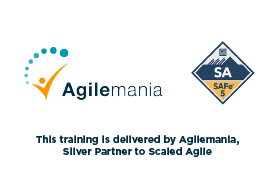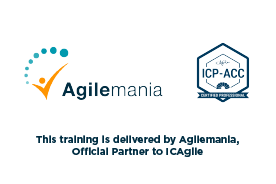
1:1 Coaching
24*7 Support
CloudLabs
High Success Rate
Globally Renowned PSTs Trainer
Real-time code analysis and feedback
Course Description
A Professional Data Engineer enables data-driven decision making by collecting, transforming, and publishing data. A Data Engineer should be able to design, build, operationalize, secure, and monitor data processing systems with a particular emphasis on security and compliance; scalability and efficiency; reliability and fidelity; and flexibility and portability. A Data Engineer should also be able to leverage, deploy, and continuously train pre-existing machine learning models.
Learning Objectives
This course teaches participants the following skills:
- Design and build data processing systems on Google Cloud Platform
- Process batch and streaming data by implementing auto scaling data pipelines on Cloud Dataflow
- Enable instant insights from streaming data
- Leverage unstructured data using Spark and ML APIs on Cloud Dataproc
- Train, evaluate and predict using machine learning models using Tensorflow and Cloud ML
- Derive business insights from extremely large datasets using Google BigQuery
Schedule
Certification Curriculum
 Introduction to Data Engineering
Introduction to Data Engineering
- Explore the role of a data engineer.
- Analyze data engineering challenges.
- Intro to BigQuery.
- Data Lakes and Data Warehouses.
- Demo: Federated Queries with BigQuery.
- Transactional Databases vs Data Warehouses.
- Website Demo: Finding PII in your dataset with DLP API.
- Partner effectively with other data teams.
- Manage data access and governance.
- Build production-ready pipelines.
- Review GCP customer case study.
- Lab: Analyzing Data with BigQuery.
 Building a Data Lake
Building a Data Lake
- Introduction to Data Lakes.
- Data Storage and ETL options on GCP.
- Building a Data Lake using Cloud Storage.
- Optional Demo: Optimizing cost with Google Cloud Storage classes and Cloud Functions.
- Securing Cloud Storage.
- Storing All Sorts of Data Types.
- Video Demo: Running federated queries on Parquet and ORC files in BigQuery.
- Cloud SQL as a relational Data Lake.
- Lab: Loading Taxi Data into Cloud SQL.
 Building a Data Warehouse
Building a Data Warehouse
- The modern data warehouse.
- Intro to BigQuery.
- Demo: Query TB+ of data in seconds.
- Getting Started.
- Loading Data.
- Video Demo: Querying Cloud SQL from BigQuery.
- Lab: Loading Data into BigQuery.
- Exploring Schemas.
- Demo: Exploring BigQuery Public Datasets with SQL using INFORMATION_SCHEMA.
- Schema Design.
- Nested and Repeated Fields.
- Demo: Nested and repeated fields in BigQuery.
- Lab: Working with JSON and Array data in BigQuery.
- Optimizing with Partitioning and Clustering.
- Demo: Partitioned and Clustered Tables in BigQuery.
- Preview: Transforming Batch and Streaming Data.
 Introduction to Building Batch Data Pipelines, EL, ELT, ETL
Introduction to Building Batch Data Pipelines, EL, ELT, ETL
- Quality considerations.
- How to carry out operations in BigQuery.
- Demo: ELT to improve data quality in BigQuery.
- Shortcomings.
- ETL to solve data quality issues.
 Executing Spark on Cloud Dataproc
Executing Spark on Cloud Dataproc
- The Hadoop ecosystem.
- Running Hadoop on Cloud Dataproc.
- GCS instead of HDFS.
- Optimizing Dataproc.
- Lab: Running Apache Spark jobs on Cloud Dataproc.
 Serverless Data Processing with Cloud Dataflow
Serverless Data Processing with Cloud Dataflow
- Cloud Dataflow
- Why customers value Dataflow.
- Dataflow Pipelines.
- Lab: A Simple Dataflow Pipeline (Python/Java).
- Lab: MapReduce in Dataflow (Python/Java).
- Lab: Side Inputs (Python/Java).
- Dataflow Templates.
- Dataflow SQL.
 Manage Data Pipelines with Cloud Data Fusion and Cloud Composer
Manage Data Pipelines with Cloud Data Fusion and Cloud Composer
- Building Batch Data Pipelines visually with Cloud Data Fusion.
- Components.
- UI Overview.
- Building a Pipeline.
- Exploring Data using Wrangler.
- Lab: Building and executing a pipeline graph in Cloud Data Fusion.
- Orchestrating work between GCP services with Cloud Composer.
- Apache Airflow Environment.
- DAGs and Operators.
- Workflow Scheduling.
- Optional Long Demo: Event-triggered Loading of data with Cloud Composer, Cloud Functions, Cloud Storage, and BigQuery.
- Monitoring and Logging.
- Lab: An Introduction to Cloud Composer.
 Introduction to Processing Streaming Data
Introduction to Processing Streaming Data
- Processing Streaming Data.
 Serverless Messaging with Cloud Pub/Sub
Serverless Messaging with Cloud Pub/Sub
- Cloud Pub/Sub.
- Lab: Publish Streaming Data into Pub/Sub.
 Cloud Dataflow Streaming Features
Cloud Dataflow Streaming Features
- Cloud Dataflow Streaming Features.
- Lab: Streaming Data Pipelines.
 High-Throughput BigQuery and Bigtable Streaming Features
High-Throughput BigQuery and Bigtable Streaming Features
- BigQuery Streaming Features.
- Lab: Streaming Analytics and Dashboards.
- Cloud Bigtable.
- Lab: Streaming Data Pipelines into Bigtable.
 Advanced BigQuery Functionality and Performance
Advanced BigQuery Functionality and Performance
- Analytic Window Functions.
- Using With Clauses.
- GIS Functions.
- Demo: Mapping Fastest Growing Zip Codes with BigQuery GeoViz.
- Performance Considerations.
- Lab: Optimizing your BigQuery Queries for Performance.
- Optional Lab: Creating Date-Partitioned Tables in BigQuery.
 Introduction to Analytics and AI
Introduction to Analytics and AI
- What is AI?.
- From Ad-hoc Data Analysis to Data Driven Decisions.
- Options for ML models on GCP.
 Prebuilt ML model APIs for Unstructured Data
Prebuilt ML model APIs for Unstructured Data
- Unstructured Data is Hard.
- ML APIs for Enriching Data.
- Lab: Using the Natural Language API to Classify Unstructured Text.
 Big Data Analytics with Cloud AI Platform Notebooks
Big Data Analytics with Cloud AI Platform Notebooks
- What’s a Notebook?
- BigQuery Magic and Ties to Pandas.
- Lab: BigQuery in Jupyter Labs on AI Platform.
 Production ML Pipelines with Kubeflow
Production ML Pipelines with Kubeflow
- Ways to do ML on GCP.
- Kubeflow.
- AI Hub.
- Lab: Running AI models on Kubeflow.
 Custom Model building with SQL in BigQuery ML
Custom Model building with SQL in BigQuery ML
- BigQuery ML for Quick Model Building.
- Demo: Train a model with BigQuery ML to predict NYC taxi fares.
- Supported Models.
- Lab Option 1: Predict Bike Trip Duration with a Regression Model in BQML.
- Lab Option 2: Movie Recommendations in BigQuery ML.
 Custom Model building with Cloud AutoML
Custom Model building with Cloud AutoML
- Why Auto ML
- Auto ML Vision.
- Auto ML NLP.
- Auto ML Tables.
Prerequisites
To get the most of out of this course, participants should have:
- Completed Google Cloud Fundamentals: Big Data & Machine Learning course OR have equivalent experience. Basic proficiency with common query language such as SQL
- Experience with data modeling, extract, transform, load activities. Developing applications using a common programming language such as Python. Familiarity with Machine Learning and/or statistics.
Download Brochure
Join Google Certified Data Engineer Training and gain the knowledge and skills you need to advance your career and provide training to support your preparation for the industry-recognized Google Cloud Professional Data Engineer certification. Download the brochure and check the different focus areas that are covered within these three days of training.
Certification Assessment
Data Engineers should be able to design, build, operationalize, secure, and monitor data processing systems with a particular emphasis on security and compliance; scalability and efficiency; reliability and fidelity; and flexibility and portability. A Data Engineer should also be able to leverage, deploy, and continuously train pre-existing machine learning models.
- High Success rate
- Join Our Dynamic Community
- Training from Recognized Trainer
- Post-workshop support by the Coaches
Testimonials
Our clients praise us for our great results, personable service, expert knowledge, and on-time delivery. Here are what just a few of them had to say:
Training FAQ's
In the Machine Learning Training, you will learn how to write distributed machine learning models that scale in Tensorflow, scale out the training of those models and offer high-performance predictions
The duration of Machine Learning Training is two-days.
Data Engineers and programmers interested in learning how to apply machine learning in practice or anyone interested in learning how to build and operationalize TensorFlow models can apply for Machine Learning Training.
With Machine Learning Training with TensorFlow Certification, you can strengthen your cloud knowledge, earn a digital certificate, and start preparing for an industry-recognized Google Cloud certification.
Participants should have experience coding in Python, knowledge of basic statistics, and knowledge of SQL and cloud computing.






